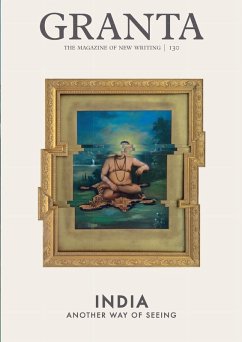For a long time - too long - the mirror that India held to its face was made elsewhere. 'What writer about the country would you recommend I read?' first-time travellers to India would ask, and in the late twentieth century the answer was still Forster or Naipaul or even the long-dead Kipling. In fiction, that changed with Rushdie. Now it has changed in all kinds of non-fiction. Narrative history, reportage, memoir, biography, the travel account: all have their gifted exponents in a country perfecting its own frank gaze.In this special issue, Aman Sethi's 'Love Jihad' gives us insight into the riots, religious fractiousness, mob mentality and political manipulations that have come to define day-to-day life in Uttar Pradesh; Samanth Subramanian investigates the legacy of postcolonialism among Mumbai's elite at one of the city's oldest exclusive clubs; Raghu Karnad reveals the secret and terrible history of a great Delhi monument; Amitava Kumar brings us with him into a richly detailed world of grief at his mother's funeral pyre on the banks of the Ganges; and Sam Miller follows Gandhi's footsteps through Victorian London. Photographer Gauri Gill and artist Rajesh Vangad take a fresh look at an Indian village and embellish its present with its past, and Katherine Boo introduces the photographs that helped her write Behind the Beautiful Forevers.Hari Kunzru imagines an Indian future where inequality is taken to an all-too-imaginable extreme; the 'English Summer' of 1985 is brought to life in an excerpt from Amit Chaudhuri's Odysseus Abroad; and Anjali Joseph invites us into the mind of an ageing cobbler as he splices together the loose strands of his memories.Granta 130: India features more fiction by Upamanyu Chatterjee, Deepti Kapoor, Kalpana Narayanan, Vivek Shanbhag, Neel Mukherjee; a story by one of India's finest - and unduly neglected - prose writers, Arun Kolatkar; and poetry by Tishani Doshi, Anjum Hasan, Vinod Kumar Shukla and Karthika Na,r.
Bitte wählen Sie Ihr Anliegen aus.
Rechnungen
Retourenschein anfordern
Bestellstatus
Storno


